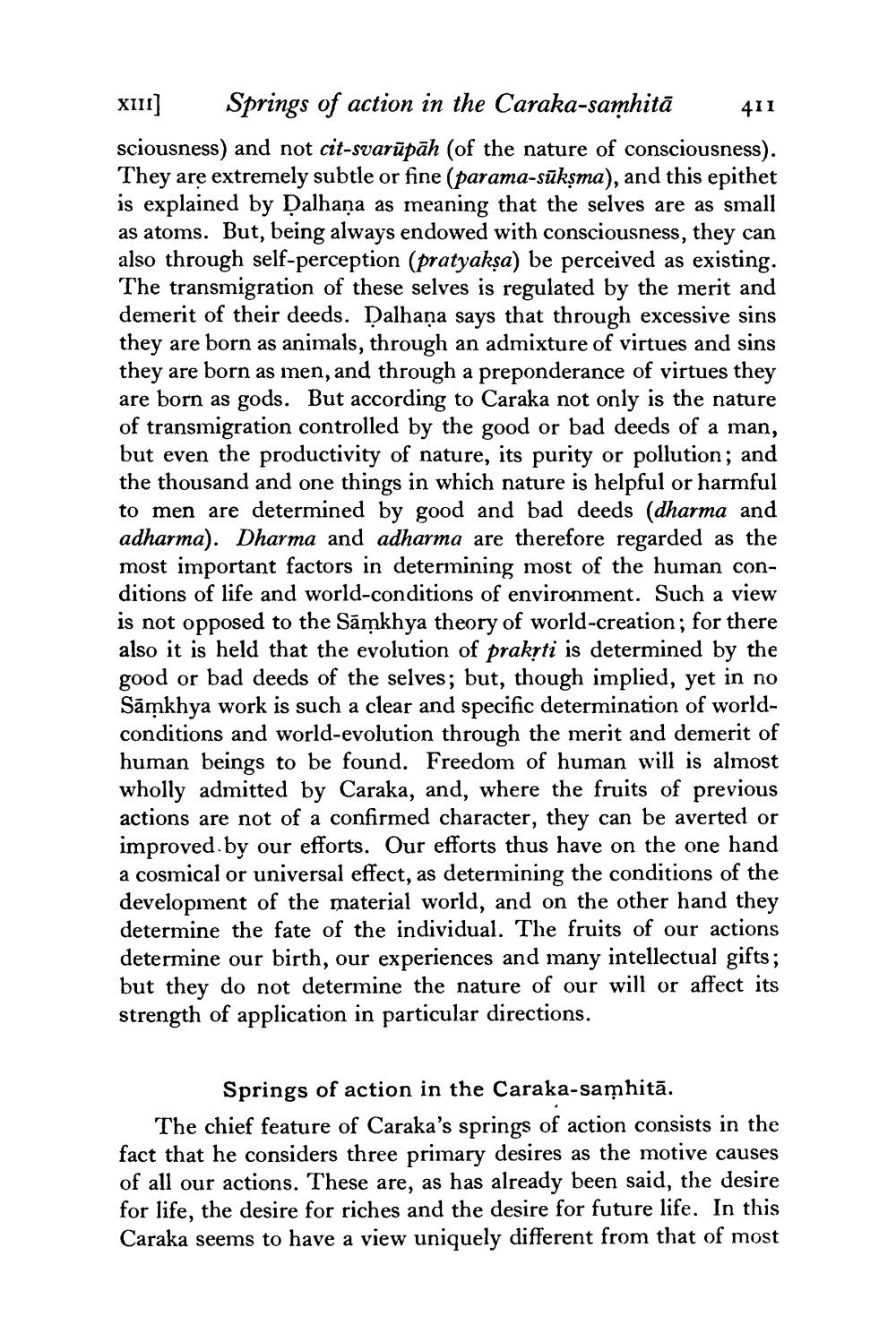________________
X111] Springs of action in the Caraka-samhitā 411 sciousness) and not cit-svarūpāh (of the nature of consciousness). They are extremely subtle or fine (parama-sūkşma), and this epithet is explained by Dalhaņa as meaning that the selves are as small as atoms. But, being always endowed with consciousness, they can also through self-perception (pratyakşa) be perceived as existing. The transmigration of these selves is regulated by the merit and demerit of their deeds. Dalhaņa says that through excessive sins they are born as animals, through an admixture of virtues and sins they are born as men, and through a preponderance of virtues they are born as gods. But according to Caraka not only is the nature of transmigration controlled by the good or bad deeds of a man, but even the productivity of nature, its purity or pollution; and the thousand and one things in which nature is helpful or harmful to men are determined by good and bad deeds (dharma and adharma). Dharma and adharma are therefore regarded as the most important factors in determining most of the human conditions of life and world-conditions of environment. Such a view is not opposed to the Sámkhya theory of world-creation; for there also it is held that the evolution of prakrti is determined by the good or bad deeds of the selves; but, though implied, yet in no Sāmkhya work is such a clear and specific determination of worldconditions and world-evolution through the merit and demerit of human beings to be found. Freedom of human will is almost wholly admitted by Caraka, and, where the fruits of previous actions are not of a confirmed character, they can be averted or improved by our efforts. Our efforts thus have on the one hand a cosmical or universal effect, as determining the conditions of the development of the material world, and on the other hand they determine the fate of the individual. The fruits of our actions determine our birth, our experiences and many intellectual gifts; but they do not determine the nature of our will or affect its strength of application in particular directions.
Springs of action in the Caraka-samhitā. The chief feature of Caraka's springs of action consists in the fact that he considers three primary desires as the motive causes of all our actions. These are, as has already been said, the desire for life, the desire for riches and the desire for future life. In this Caraka seems to have a view uniquely different from that of most




